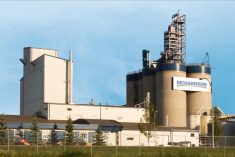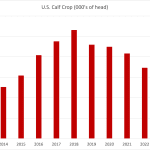BEIJING, Feb 27 (Reuters) – China aims to set up more large-scale family farms as it tries to commercialise a vast agriculture sector battling inefficiency and a dwindling workforce, the government said on Thursday.
China’s last big rural reform in the early 1980s gave households the right to lease collectively-owned land, but the minimal returns earned from small plots forced millions to flee to the cities in search of work.
“With the migration of a large number of rural labourers to cities, the question of who will farm has become the outstanding issue,” Zhang Hongyu, a rural policy director at the agriculture ministry, told reporters.
Read Also

U.S. criticizes Mexico’s handling of screwworm near border
U.S. Agriculture Secretary Brooke Rollins on Thursday said Mexico has not adequately enacted protocols to curb the spread of New World screwworm.
Now Beijing is trying to encourage rural families to stay in the countryside by boosting incomes in line with urban ones, and large family farms have been identified as the most effective route, Zhang said.
“Family farms, which keep family members at their core, have become effective forces in leading the development of modern agriculture.”
By the end of 2012, there were around 877,000 larger family-owned farms covering 11.7 million hectares of land, with each farm measuring about 13 hectares on average, Zhang said.
“A proper size of farms can improve efficiency, but it should not be too big,” Zhang added. “Too big a size will hurt rural employment and lower yields from land and is not beneficial in boosting farmers’ returns and grain security.”
China last year allowed rural collectively-owned land to be transferred, rented or pooled, but top farm officials warned that agricultural land would be reserved for production of grain and not opened to industrial or commercial use.
















